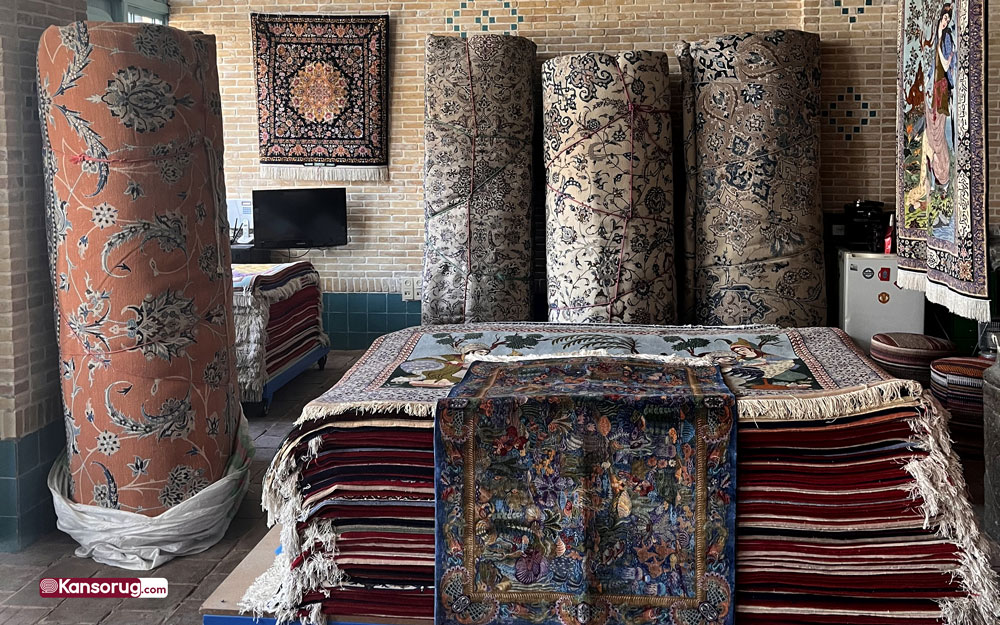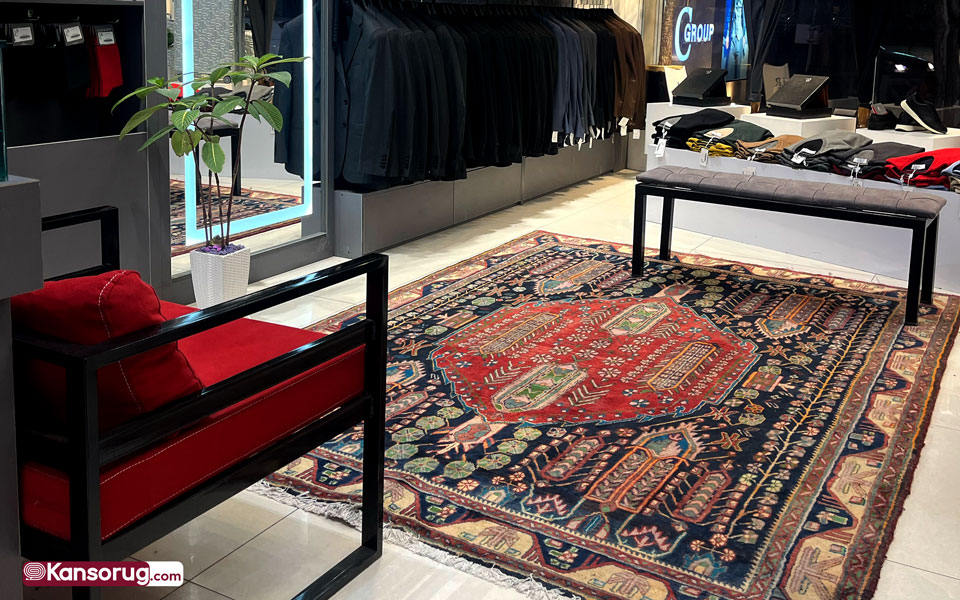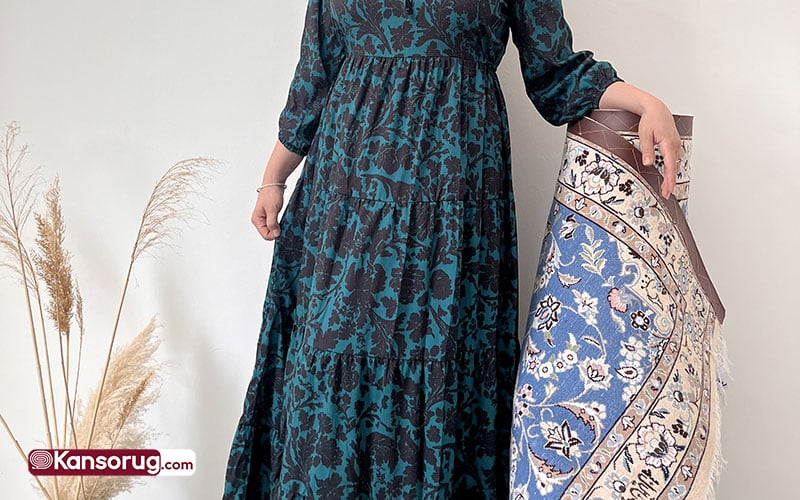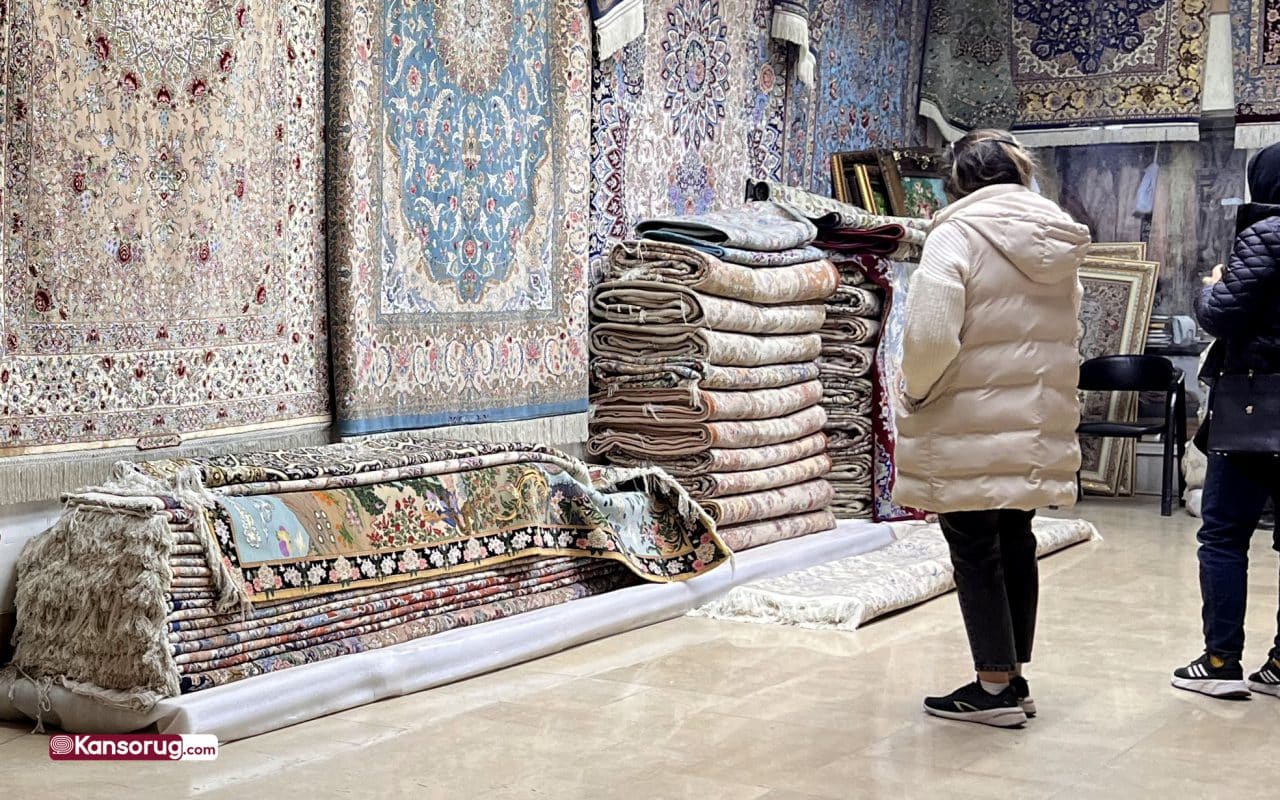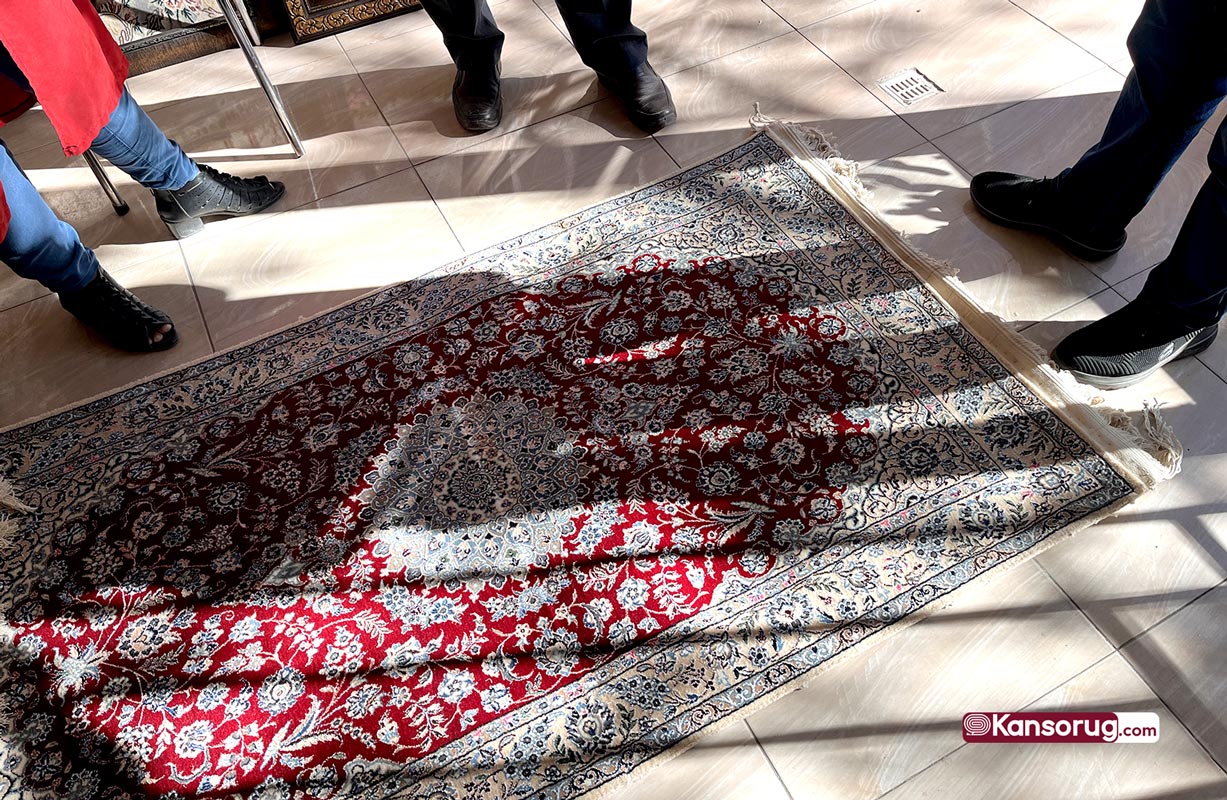Why Persian Rugs Are Expensive and Valuable: Unveiling the Artistry
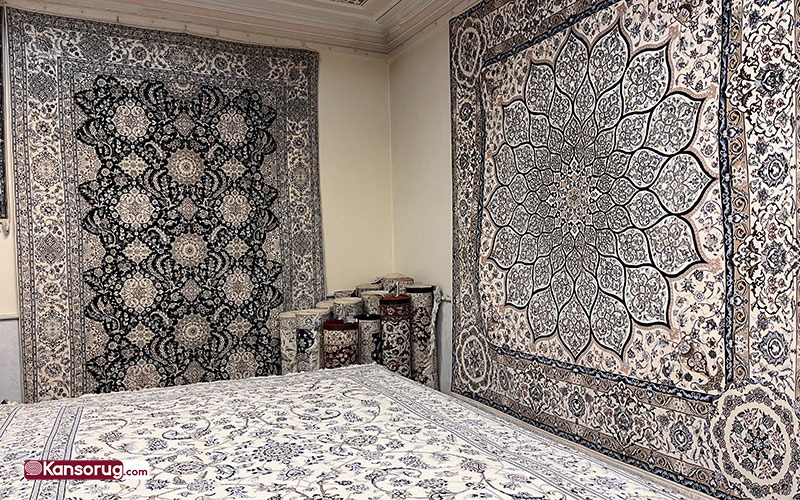
Welcome to the world of Persian rugs, where every knot is a piece of art, and every thread tells a story. In this exploration, we’ll unravel the mystique behind the price tag and answer Why Persian Rugs Are Expensive, shedding light on why Persian rugs are expensive and immensely valuable.
Imagine yourself browsing a vibrant Persian carpet market in Iran, surrounded by shops brimming with handwoven treasures in silk and wool. Carpets hang on walls and line the stores, their vibrant colors and intricate designs drawing your eye at every turn.
A question arises: What makes these rugs so valuable? You approach one, your fingers brushing against the artfully woven threads. A sense of awe washes over you as you admire its delicate beauty. But how do you truly understand a hand-woven Persian carpet’s worth? Why would you pay a premium for this piece compared to a machine-made rug, an Indian offering, or a Pakistani carpet costing just $200? Let’s explore why Persian carpets command such a high price, and how to navigate valuing these exquisite heirlooms.
In This Blog...
ToggleWhy Persian Carpets Are So Expensive?
To answer Why Persian Carpets are so expensive have to say that the high cost of Persian carpets stems from several key factors. Firstly, the meticulous handwoven craftsmanship elevates their value. Each rug represents months or even years of dedicated work by skilled artisans.
Beyond the time invested, several other elements contribute to the price: intricate designs, high-quality materials like silk and wool, the precision of traditional weaving techniques, and the carpets’ exceptional durability. Natural dyes and the potential for an antique rug to become even more valuable further influence the cost.
These factors combine to create a timeless treasure. A Persian carpet not only enhances your home’s beauty but also retains its material and cultural value for generations.
Is Buying a Persian Rug Worth It? A Tapestry of Tradition
At the heart of the value lies the centuries-old craftsmanship. Persian rugs are handwoven, preserving traditional techniques passed down through generations. Moreover, artisans invest time, skill, and passion, ensuring each rug is a masterpiece of enduring beauty.
The allure of handmade carpets goes beyond their originality. Experience the exquisite harmony of design, color, and soft texture in your home décor just once, and you’ll find yourself cherishing the beauty of a Persian carpet every day.
Are Rugs Made in Iran Valuable? Colors That Echo Through Time
The richness of Persian rugs is not just in their patterns but in the vibrant hues that stand the test of time. Crafted with natural dyes derived from plants and insects, these colors not only captivate but also signify a commitment to sustainability. In addition, this dedication to eco-friendly practices enhances the overall appeal of Persian rugs.
Iran, the world’s leading producer of hand-woven carpets, boasts a rich heritage of craftsmanship and traditional weaving techniques. The value of an Iranian carpet extends beyond its captivating design and colors. The masterful weaving techniques employed ensure exceptional durability and longevity, allowing these carpets to retain their value, beauty, and charm for generations.
Why Do People Buy Persian Carpets? Handcrafted Elegance
Machine-made rugs lack the personal touch that comes with handmade craftsmanship. Each Persian rug is a labor of love, with artisans investing weeks, sometimes months, to create a single piece. This handcrafted approach adds a unique and invaluable quality. Furthermore, it ensures that no two rugs are exactly alike, making each one a truly one-of-a-kind creation.
Considering a machine-made carpet or a non-Persian rug? Look no further! Persian rugs offer a wide range of sizes and prices, from budget-friendly options around $100 to exquisite pieces valued at much higher. More importantly, these rugs are hand-crafted from natural materials using time-tested designs. Their quality and intricate beauty far surpass anything machine-made imitations can offer.
How Long Do Persian Carpets Last? Stories Woven into Design
Persian rug designs are not merely aesthetic; they are narratives. Exploring motifs, patterns, and symbols, each rug tells a cultural or historical story. To illustrate the point, let’s dive into the intricate designs that make each carpet a piece of living history.
The enduring appeal of Iranian handwoven carpets goes beyond simply lasting a lifetime. These rugs are designed to retain their charm for generations, becoming treasured heirlooms. Museum collections showcase carpets hundreds of years old! The durability depends on two key factors: the quality of the carpet (Persian rugs come in a variety of qualities to suit any budget and taste) and, more importantly, proper care and maintenance.
The Rarity and Exclusivity
Certain Persian rugs are produced in limited quantities, contributing to their exclusivity. Namely, this rarity increases their perceived value, as owning a piece becomes akin to possessing a rare work of art. In contrast to mass-produced alternatives, limited-edition Persian rugs stand out as unique investments.
A Legacy of Luxury
Persian rugs are often considered investments. Beyond their immediate aesthetic appeal, these rugs appreciate in value over time, becoming cherished family heirlooms passed down through generations. As a result, they hold not only financial value but also sentimental worth.
Are Persian Rugs Made in China?
Just like with any product, machine-made or semi-handwoven imitations of Persian rugs have been flooding the market for years, often from China (particularly Nanyang City) and even India and Pakistan. These imitations are sometimes sold as genuine Persian rugs. Read more here.
However, there’s no need to fret! If you’re looking for an authentic Persian rug, you have two options: visit reputable Iranian sellers in your area or connect directly with stores in Iran for a truly immersive experience. We can guide you through that process.
Can I Buy a Carpet in Iran?
The internet has transformed shopping, making it faster and easier than ever to buy directly from other countries. This opens the door to a world of authentic Persian rugs! By connecting with a reputable seller in Iran’s major carpet markets (Isfahan, Qom, Tabriz, Kashan, Nain, Ardakan), you gain access to a vast selection – from classic Isfahan designs to nomadic Qashqai rugs, and stunning handwoven Gabbeh, Kilim, and Zilou varieties. You can even choose between traditional or contemporary styles, and have complete confidence in the quality of the handwoven materials.
Here’s how we can simplify the process: tell us your preferred design and color scheme, and we’ll help you find the perfect rug to be delivered directly to your doorstep.
Last Line:
If we want to answer why Persian carpet is expensive now we understand better. The undeniable allure of Persian rugs lies partly in their rich history. Many are indeed centuries old, transforming them into valuable cultural artifacts. Their age and rarity can sometimes elevate their worth beyond mere monetary value.
Owning a Persian rug isn’t just a purchase; it’s an investment in artistry, tradition, and a vibrant cultural heritage. The value transcends the physical beauty, making each rug a timeless treasure.
Explore our collection and discover the artistry and heritage woven into every thread. We invite you to embark on a journey to experience the enduring beauty and value of Persian rugs.
Please rate Stellar
Your page rank:
Related Posts
How Can I Buy a Persian Rug from Iran? Challenges and Solutions
-
Posted by
kansorug_admin
- 1 comment
How Do I Know What Carpet to Buy? Which Type of Carpet Is Best?
-
Posted by
kansorug_admin
- 0 comments
Hand-woven or Machine-made Carpet? Are Handmade Rugs Better?
-
Posted by
kansorug_admin
- 3 comments
Spot a Real Deal: Identifying Persian Handwoven Carpets
-
Posted by
kansorug_admin
- 0 comments
How Handmade Carpets Are Priced and Evaluated?
-
Posted by
mohammadreza saberi
- 0 comments

